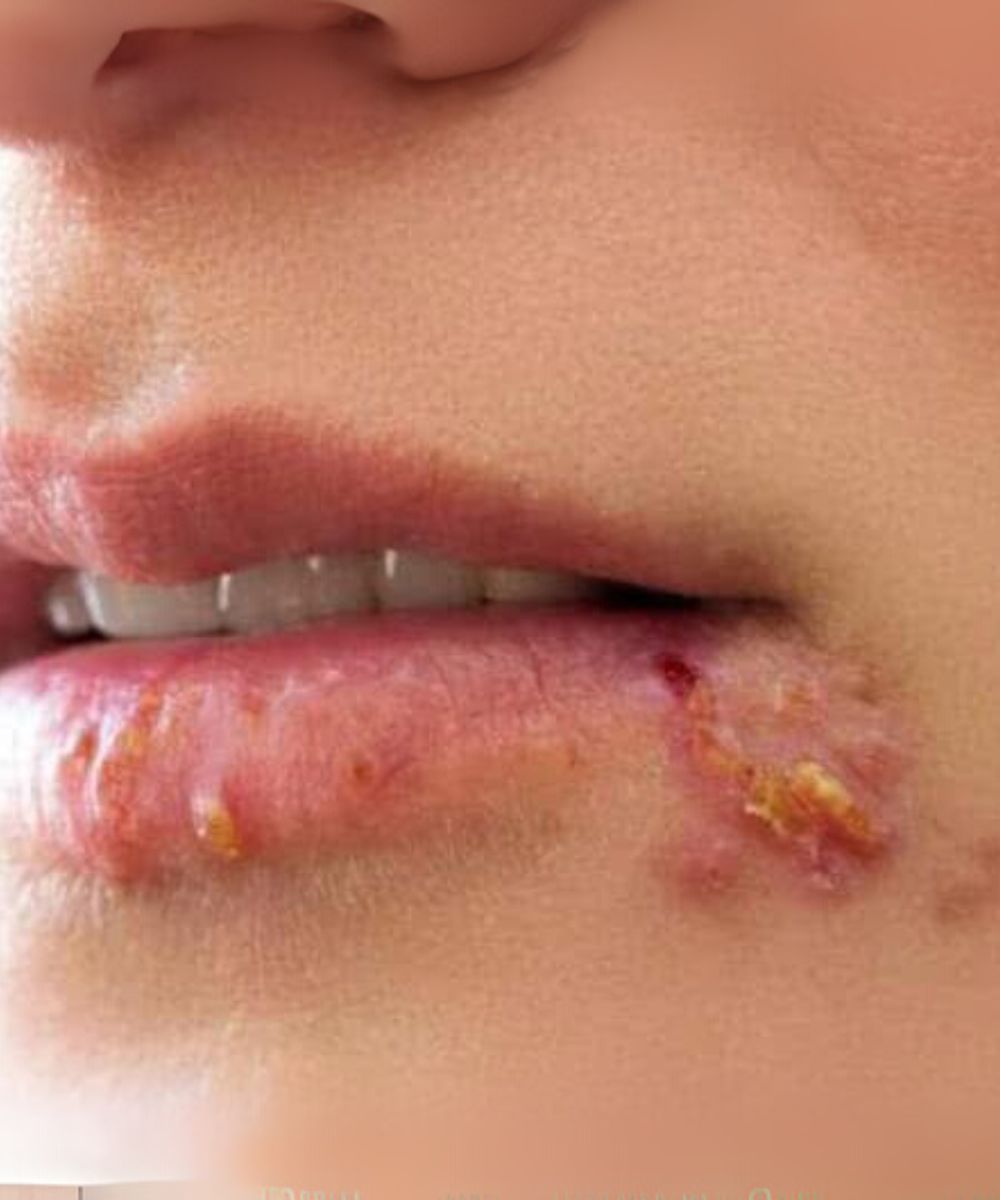Cold sores, also known as fever blisters, are a common skin condition caused by the herpes simplex virus type 1 (HSV-1). While they are typically not dangerous, they are highly contagious, often uncomfortable, and tend to return once you’ve had your first outbreak.

This recurring nature happens because the virus never actually leaves your body—it hides in your nerve cells in an inactive state and can reactivate when triggered. Most people contract HSV-1 in childhood through close contact, such as kissing or sharing utensils, cups, or other personal items. Once the virus enters your system, it remains there for life, lying dormant until certain factors cause it to resurface. HSV-1 is different from HSV-2, which more often causes genital herpes, but either type can infect different parts of the body depending on how it’s transmitted. Even if the virus is dormant, specific triggers can cause an outbreak.
These include emotional or physical stress, illness such as the common cold or flu, a weakened immune system, hormonal fluctuations like those during menstruation, prolonged sun exposure especially on the lips, and fatigue or lack of sleep. Outbreaks usually occur on or around the mouth, nose, chin, or cheeks. Cold sores often give warning signs before they appear, such as tingling, itching, or burning sensations in the affected area, along with redness or swelling near the lips. Within 24 to 48 hours, small fluid-filled blisters typically develop in clusters. These blisters eventually burst, ooze, and form a crust.
The healing process can take anywhere from two to four weeks. Starting treatment at the very first sign can help shorten the duration, lessen discomfort, and reduce the risk of spreading the virus to others. Although there is no permanent cure for HSV-1, several treatments can help manage symptoms and speed recovery. Antiviral medications like acyclovir or valacyclovir are most effective when taken as soon as you feel the first tingling. Over-the-counter creams containing docosanol or lidocaine can ease pain and swelling, and oral pain relievers such as ibuprofen or acetaminophen can provide further comfort.
In addition to medication, some natural remedies may help soothe the skin and promote healing. Aloe vera can calm irritation, while lemon balm may help reduce healing time and prevent future outbreaks. Tea tree oil, which has antiviral properties, can be used in diluted form, and petroleum jelly or lip balm can keep sores moist and shield them from external irritation. Preventing future outbreaks is possible with healthy daily habits. Managing stress, getting enough rest, and protecting your lips with sunscreen when spending time outdoors can help keep the virus in check. Supporting your immune system with a balanced diet, regular exercise, proper hydration, and consistent sleep patterns also plays a crucial role in reducing flare-ups.
Because cold sores are highly contagious—especially when blisters are present—it’s important to take precautions to prevent spreading the virus to others. Avoid close physical contact such as kissing during an outbreak, and never share lip products, food, drinks, utensils, towels, or napkins. Wash your hands frequently and avoid touching your face or eyes when you have an active sore, as the virus can spread to other areas, including the eyes, which can cause serious complications. In some cases, you should consult a healthcare professional.
Seek medical advice if you experience frequent outbreaks—more than six times a year—if the sores are unusually painful or last longer than normal, if sores develop near your eyes, or if you have a weakened immune system that could make the infection more severe. While there is no cure yet, research continues toward developing more effective treatments, vaccines, and even potential gene-editing therapies that could one day eliminate the virus entirely. Scientists remain hopeful that better prevention and treatment options will become available in the near future. In the meantime, the best approach to living with HSV-1 is to be proactive.
Recognizing the early warning signs, starting treatment promptly, maintaining a healthy lifestyle, and taking steps to prevent transmission can make cold sores more manageable. With consistent care and the guidance of a healthcare provider, you can reduce the frequency and severity of outbreaks while protecting those around you. Staying informed and prepared will help you handle cold sores with confidence and minimize their impact on your daily life.





